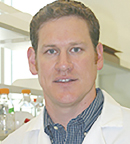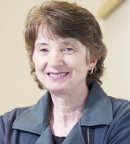A large study headed by researchers at the Keck School of Medicine of the University of Southern California and two other institutions received $12 million in funding to examine why African American women seem to have more aggressive breast tumors and higher mortality rates from breast cancer than white women.
The grant, awarded by the National Cancer Institute, is based on the premise that having a better understanding of the biology and genetics of breast cancer in African American women may lead to better prevention and targeted treatment.

Chris Haiman, ScD
Chris Haiman, ScD, Professor of Preventive Medicine at the Keck School of Medicine, organized the African American Breast Cancer Consortium, which developed the network of scientists and body of research that will support this new study.

Wei Zheng, MD, PhD

Julie Palmer, ScD
Dr. Haiman will be leading the study alongside Wei Zheng, MD, PhD, of Vanderbilt University in Nashville, and Julie Palmer, ScD, of Boston University. The investigators will pool data, biospecimens, and expertise from 18 previous studies of breast cancer among women of African ancestry to determine whether genetic variants may be associated with an increased risk of breast cancer.
Study Details
Specifically, the investigators plan to examine the association between genetic variants and the risk of estrogen receptor–negative breast cancer and estrogen receptor–positive breast cancer as well as how genetic variants may affect major breast cancer biologic pathways and whether the effects differ between African American and white women.
Additionally, experts from 5 other institutions will gather information and biospecimens from 20,000 breast cancer cases.
The reasons for the differences in breast cancer biology and disparities in incidence and mortality rates between white and African American women are not well understood, and existing studies are not large enough to provide sufficient statistical power to elucidate the factors associated with how breast cancers develop. The size and power of this new study could help address the current lack of scientific understanding.

Douglas Lowy, MD
“Health disparities are a problem of great concern for the National Cancer Institute and one that we are zeroing in on, as evidenced by this grant,” said Douglas Lowy, MD, Acting Director of the National Cancer Institute. ■

